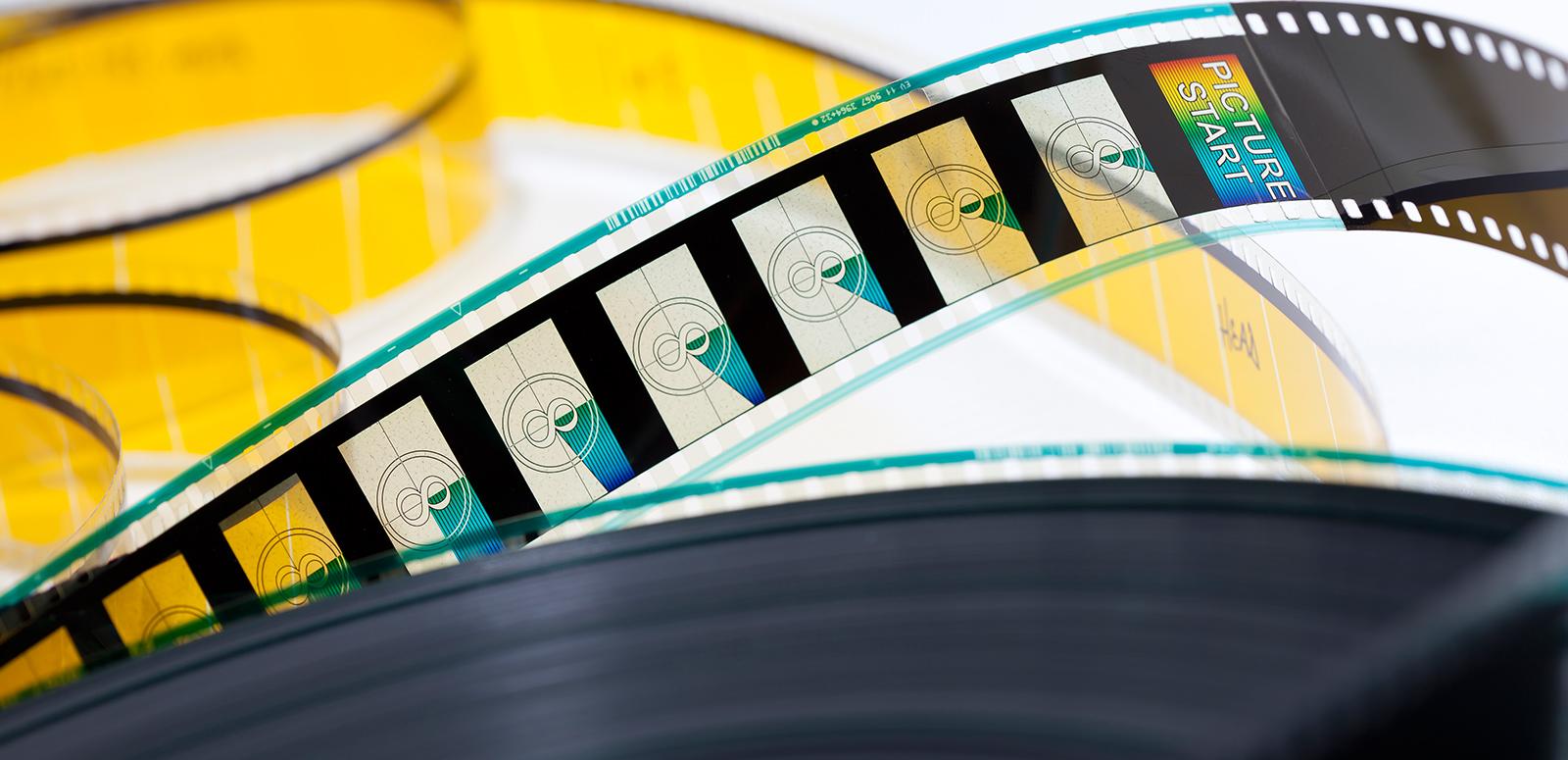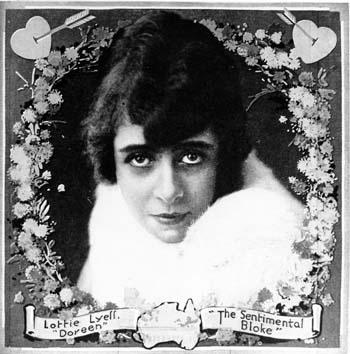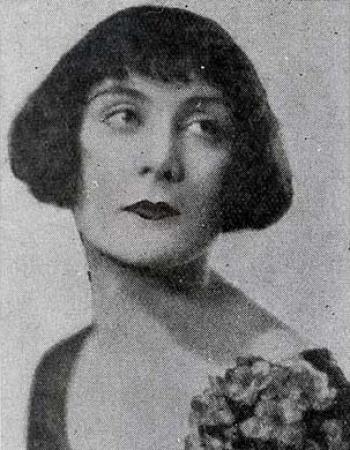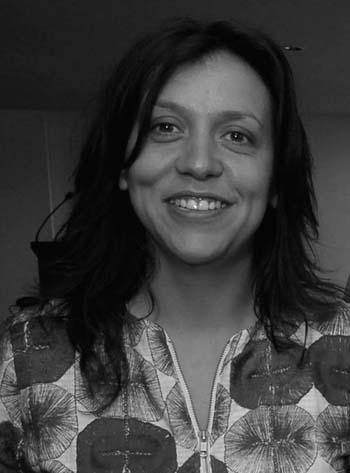

Women leaders in film
In 2014, the NFSA joined with nine other organisations to promote a new understanding of Australian women’s leadership in the 20th century. The result was Australia’s first online Encyclopedia of women leaders. As part of the project we highlighted the cultural achievements of nine outstanding women in film, radio and television.
Lottie Lyell

In a tragically short life, Lottie Lyell made an extraordinary contribution to the early development of the Australian feature film industry, as well as establishing herself as one of Australia’s first film stars. Committed to developing films in her own country, her career culminated in making and starring in one of the landmark silent features of the era – The Sentimental Bloke.
While now acknowledged as a pioneer of Australia’s feature films, Lottie Lyell’s long association with Raymond Longford both enabled and obscured her part in their many joint productions.
The loss of many early Australian films, the inconsistency of early film credits and the lack of her own account makes it difficult to establish Lyell’s exact roles. However, while only credited as assistant director on two films, the testimony of contemporaries, press reports, letters and production documents make it clear that as well as a highly regarded actor, she was widely acknowledged and admired as a film scriptwriter, editor, producer and director. Her career spanned 18 years, commencing with acting in the theatre and concluding with the posthumous release in 1926 of Peter Vernon’s Silence, a Longford Lyell production co-written by Lyell and Longford, and The Pioneers for which she is credited with adapting the screenplay from Katharine Susannah Pritchard’s novel. In a productive personal and professional partnership Lyell and Longford made 28 films together, with Lyell performing in 21.
Lottie Edith Cox was born in Balmain, Sydney in 1890. She had adopted the stage name of Lottie Lyell by the time she appeared as Maggie Brown in the play An Englishman’s Home in Maitland in 1909. Following her first appearance in Captain Midnight in 1909, her film career began in earnest with Spencer’s Pictures where she first reprised her stage role of Mabel Wilson in The Fatal Wedding on film, directed by Raymond Longford in 1911. This was followed with a star role in The Romantic Story of Margaret Catchpole, the first of a number of virtuous ‘bush heroine’ roles in which Lottie demonstrated her considerable athleticism and horse-riding prowess.
From the beginning, Lyell’s acting was praised by critics, often singling her out from the cast and noting her unaffected, natural style. Surviving footage of Lyell’s films attest to her powerful on-screen presence. Lyell’s experience both in front of, and behind, the camera seems to have informed her performances, as she quickly adapted to a less theatrical acting style – resulting in an engaging realism on the screen. As a director, she was innovative in preparing casts by mixing with the community they would be portraying and instructing actors to pull back from the more exaggerated stage acting that most were trained in.
As well as portraying strong female characters, a number of the screenplays attributed to Lottie Lyell challenged social conventions by presenting them from a woman’s point of view. In particular, The Woman Suffers, made in South Australia in 1917, is claimed as Australia’s first feminist film for its well-promoted moral message about the hypocrisy and inequity of the moral ‘double standard’ for men and women. The plot portrays the harm caused by domestic violence and the injustice of unmarried pregnancy ruining the life of a woman with no impact on the life of the irresponsible father.
Excerpt from The Woman Suffers (Raymond Longford, Australia 1918). NFSA title: 4112
The 1919 film The Sentimental Bloke, based on CJ Dennis’s much-loved poem, also turned the tide in its sympathetic portrayal of city and working-class life. In most Australian features up to this point virtuous women came from wholesome country backgrounds, with a move to the city associated with corruption and bad habits. In contrast, Lottie Lyell’s Doreen is sweet, hardworking and funny, and is the moral compass that guides the larrikin ‘bloke’ to a life of sober happiness. The film was released and praised internationally. Lyell’s contribution to the film included production, screenplay and editing as well as playing the female lead.
Lyell continued to work on films although from 1920 illness interrupted her career. In 1921 she co-produced and performed in the sequel to The Sentimental Bloke – Ginger Mick – then concentrated solely on producing and directing The Blue Mountains Mystery before performing in On Our New Selection. In 1923 Longford and Lyell formed a new production company – Longford Lyell Productions – and they worked on a further six films together, two of which were released after her death from tuberculosis on 21 December 1925. She is buried in the Northern Suburbs cemetery in Ryde, NSW alongside Raymond Longford.
Lottie Lyell’s death came at the close of the first vigorous era of Australian feature film production. Lyell’s dedication, talent and willingness to work outside of traditional women’s roles contributed enormously to the flowering of cinema production in Australia at the beginning of the 20th century.
BY BRONWYN COUPE
References
The Woman Suffers Original Release, 1918, NFSA title: 4112
The Woman Suffers Reconstruction: NFSA Product, 1991, NFSA title: 274544
Paulette, Phyllis and Isabel McDonagh

In 1926, three remarkable sisters made history by becoming the first Australian women to own and run a film production company. They were also among the first to produce a talkie in Australia. Professionally known as the McDonagh sisters, they followed in the footsteps of Australian female film pioneers such as Lottie Lyell and Louise Lovely. However, the social and economic advantages of being born into a wealthy Sydney family offered more opportunities for this new trio. The sisters collaborated to make both feature-length dramas and documentaries, with Paulette working as the director and writer, Phyllis as a producer and Isabel, acting under the name ‘Marie Lorraine’, being their featured star.
Isabel (b. 1899), Phyllis (b. 1900) and Paulette (b. 1901) were the eldest of seven children of John Michael McDonagh, the surgeon to JC Williamson’s theatrical companies, and his wife Annie. During their childhood, they were frequent filmgoers and developed a keen interest in Australian films. However it was the imported Hollywood productions of merged melodramatic plots, naturalistic direction and the themes of class difference, family conflict, romance and crime that appealed to them most and influenced their creative endeavours. During their final year at school, Paulette and Phyllis wrote the script for what would later become their first feature film, Those Who Love, about a rich outcast who falls in love with a low-class showgirl.
The McDonagh sisters’ debut film premiered on 26 November 1926 in Newcastle, New South Wales, and produced enough revenue to finance their second picture, The Far Paradise, in 1928. Their subsequent feature films were The Cheaters (1930) and Two Minutes Silence (1933). Those Who Love and The Far Paradise were both popular at the box office and critically well-received, but the failure of The Cheaters and Two Minutes Silence ultimately bankrupted McDonagh Productions. Originally conceived as a silent film, The Cheaters became trapped in the widespread enthusiasm for the new talkies phenomenon. Shortly before its 1930 release, the sisters added three sound-on-disc sequences but the disappointing results greatly weakened the strong performances, script and cinematography. The sisters’ later attempt to create a complete sound-on-film version by re-shooting the film’s closeups and dubbing its wide shots was creatively compromised to the extent that it failed to obtain a release at all.
The sisters’ first two films were filmed substantially at their family residence, the historic Drummoyne House. The films all had an urban setting, which set them apart from the mostly rural Australian films being made at the time. Another unique feature was the portrayal of the heroines, played by Isabel. Phyllis and Paulette created scenarios for a more spirited and independent heroine than the norm; someone who challenged and was buffeted by social convention and took charge of an action-packed destiny as well as playing the traditional love interest. Isabel’s acting style was also praised for its naturalism.
Despite the Depression, the sisters continued to make short documentaries, including Australia in the Swim with the Olympic swimming team, How I Play Cricket with Sir Donald Bradman and The Mighty Conqueror with Phar Lap. Their last feature film, Two Minutes Silence, was made in 1933 and first screened commercially in Canberra on 18 October of that year. Unlike their earlier romantic melodramas, the film tackled a serious anti-war message. It opens in London at 11 o’ clock on Armistice Day. The two minutes silence awakens memories in a number of characters, including an orphaned French girl, a digger and a butler. Critics however were mostly dismissive, complaining that it lacked any real dramatic impact. One notable exception was Australian poet Kenneth Slessor, who found it to be ‘a powerful and convincing story, intelligently directed and capable of challenging comparison with world standards’ (Smith’s Weekly, 10 February 1934).
Excerpt from How I Play Cricket (Australia 1932). NFSA title: 44179
Meanwhile, life started to take the McDonagh sisters in new and different directions. In September 1932, Isabel married Charles Stewart and went to London where the first of their three children was born in 1933. Isabel returned to Sydney in 1935 to be near her family but eventually relocated to London again in 1965 and died there on 5 March 1982, survived by her children. Phyllis accepted a position as editor of New Zealand Truth and married Leo Francis Joseph O’Brien, in 1941. Like Isabel, she later returned to Sydney to work as a journalist and short-story writer, and from 1960 was the social editor on the North Shore Times. She died on 17 October 1978.
With difficulty, Paulette continued alone with filmmaking. In 1934 she worked on a film based on the life of flying pioneer doctor Reverend John Flynn. However, she was unable to raise the necessary budget, and without her sisters’ involvement, saw no point in trying to continue. She lived with her younger sisters until 1940, when she moved to Kings Cross. Paulette died in Sydney on 30 August 1978.
In August 1978, Phyllis received the Australian Film Institute’s Raymond Longford award on behalf of the sisters, in fitting acknowledgement of their significant contribution to Australian filmmaking. Today, Phyllis, Paulette and Isabel McDonagh are remembered for their talent, their originality and vision as groundbreaking early Australian filmmakers.
BY JENNIFER COOMBES
References
Archival
Dornan, Paula interviewed by Judith Kelly, NFSA title: 330324
Published
Berryman, Ken, ‘McDonagh Sisters Talk’, Film news, August 1988, pp 11-12
Shirley, Graham, ‘Australian Cinema: 1896 to the Renaissance’ in Scott Murray (ed.), Australian Cinema, 1994, Allen and Unwin, Sydney, pp 5-44
Shirley, Graham, The Cheaters, in ‘Films We Love 1: Legions of the Lost, Forgotten, Underrated and Neglected Australian films’, Cinema Papers 100, 1994, pp 18-20
Slessor, K, Smith’s Weekly, 10 February 1934
Rachel Perkins

Rachel Perkins, a woman of the Arrernte and Kalkadoon nations, is at the forefront of the Australian filmmaking industry. Her continuing body of work as a screenwriter, producer, director, board member and festival director embodies her passion and skill in bringing Australian Indigenous stories to the screen.
Born in Canberra in 1970, Rachel Perkins was the daughter of Indigenous activists Eileen and Charlie Perkins. At the age of 18, she moved to Alice Springs and entered into a traineeship at the Central Australian Aboriginal Media Association (CAAMA). Working extensively on Nganampa Anwernekenhe, a long-running series which showcased Indigenous languages and cultures, Perkins increasingly felt ‘a degree of responsibility towards the people who you’re portraying and your respect for that and to empower them in the process’ (CAAMA, 2011).
With this responsibility firmly in mind Perkins left CAAMA at 21 to become the youngest female Executive Producer at SBS Television, generating programming for the Aboriginal Film Unit. She produced series such as the three-part documentary Blood Brothers (1993) and From Spirit to Spirit, the first international television series created solely by Indigenous peoples from Australia, Canada, New Zealand and Norway.
In 1993 Perkins established the production company Blackfella Films. Focused on self-representation, Blackfella Films committed resources to culturally significant stories, told by and with Indigenous media practitioners. As part of this agenda Blackfella Films founded the Message Sticks Indigenous Film Festival, with Perkins becoming its Director/Curator, mentoring filmmakers and creating another spotlight for Aboriginal and Torres Strait Islander film and television.
Not wanting to be restricted to documentary filmmaking Perkins wished to expand into drama production, and applied to the Australian Film Television and Radio School in Sydney where she won the first Indigenous Program Scholarship in 1995. Shortly afterwards, and in collaboration with the Australian Film Commission, Perkins produced the first Indigenous drama initiative From Sand to Celluloid making short films such as Payback (1996) with Warwick Thornton.
After a stint at the Australian Broadcasting Corporation (ABC) as the Executive Producer of the Indigenous Programs Unit, Perkins left the ABC to direct her first feature film, Radiance (1998). The script dealt with issues such as the stolen generations, racism, rape and adoption, and went on to win numerous awards at festivals and from critics’ circles around the country. Perkins then directed One Night, the Moon (2001) with Paul Kelly. The musical was inspired by the story of Indigenous tracker Alexander Riley and examined the impact of racism, respect and social justice.
Perkins’ commitment to challenging long-established attitudes and historical representation of Indigenous perspectives came to fruition with the documentary series First Australians (2008). Perkins researched and portrayed the Indigenous Australian perspective of European settlement though individual stories and accounts gained through extensive community consultation. With differing multi-platform content made for television, documentary and the web, Perkins’ work was a forerunner in the collaborative processes required to protect Indigenous Cultural and Intellectual Property rights.
Whether it be as the director of the feature Bran Nue Dae (2010),co-creator of television series Redfern Now (2012), through implementing national training strategies or as the co-founder of the first free-to-air National Indigenous Television (NITV), Rachel Perkins continues her commitment and passion for creating screen content that challenges traditional societal history.
Excerpt from Blood Brothers, Blood Sisters: Rachel Perkins, Filmmaker: Oral History Interview (University of Melbourne, Australia 2004). Courtesy of Rachel Perkins and Jeanette Hoorn. NFSA title: 679166
BY TENILLE HANDS
References
Archival
Perkins, Rachel interviewed by Christine Hogan, NFSA title: 738929
Perkins, Rachel interviewed by Jeanette Hoorn, NFSA title: 679166
Online
The Black Book, Blackfella Films, viewed 17 November 2012
Rachel Perkins Biography, Blackfella Films – About – Staff, viewed 20 November 2012
The National Film and Sound Archive of Australia acknowledges Australia’s Aboriginal and Torres Strait Islander peoples as the Traditional Custodians of the land on which we work and live and gives respect to their Elders both past and present.